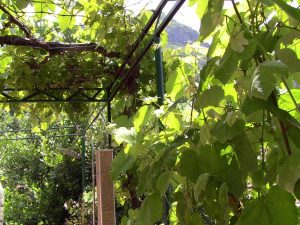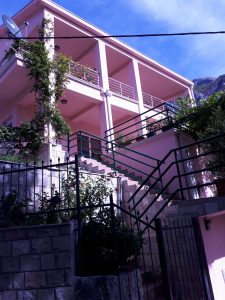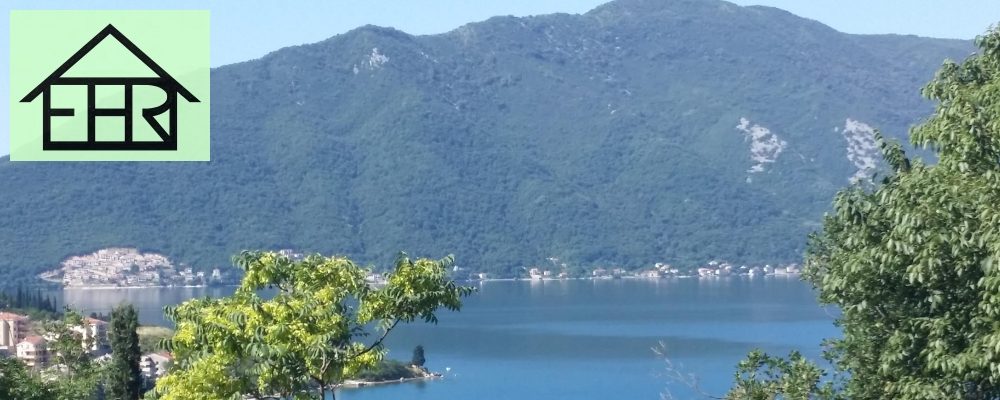Anke’s brother, a ‘Studien-Director’ at a Fachhochschule in Germany advised us to build in an energy-efficient, sustainable way, His years of research and work with his apprentice students and their firms to develop energy efficiency in small houses in their school park brought him the Sustainability Award in Expo 2000 in Hannover.
That led us to find the Passiv Haus principles, an energy-efficient and cost-optimal building. Our work in the Balkans allowed us to see the monotonous building environment and the legacy of the previous decades of industrialisation and mass development. These older buildings tended to have poor indoor air quality; and inefficiency in their energy systems, and so a negative impact on many people’s health. Albania and Macedonia’s waste management was dreadful, the water use and rivers were unhealthy. Nature was almost opulent in beauty, could we not connect building sustainability and nature?
with his project about planning and building the first eco-or low-energy house in Montenegro. Our approach to architecture sought to connect us closer to nature. Natural lighting, ventilation, cooling, and natural landscape features we hoped to create a productive healthy holistic environment for us.
The aim of the project was not only to illustrate how such a building is constructed and operates but also to initiate the transfer of the necessary skills from countries where the technology and legal requirements are in place like in Germany; such buildings, suppliers, skills of workers are not yet in place in Montenegro. This Eco-House was thus become a practical demonstration of sustainable, energy-efficient building practice combined with an environment for the various trades and professions involved in the construction industry, from building contractors, architects, and equipment/material suppliers, to government agencies and educational establishments.
 The concept of the house itself is that its construction is passive – ie. making use of the design to minimise energy consumption throughout the year. The principle is that with a closed highly insulated shell, comfort levels can be achieved by heating and cooling the flow of fresh air coming into the building.
The concept of the house itself is that its construction is passive – ie. making use of the design to minimise energy consumption throughout the year. The principle is that with a closed highly insulated shell, comfort levels can be achieved by heating and cooling the flow of fresh air coming into the building.
Recovery of the waste heat in the exhaust air is an essential part of this. Additionally, the demand for the external power supply will be minimised by the use of solar energy for water heating and, possibly, electricity generation. With water in short supply in the country, especially during the summer, rain-water harvesting and the recycling of ‘grey’ water will also be an essential part of the house.

The current situation in Montenegro is that modern energy-saving technologies are hardly used. *Given the construction boom’ which is likely to last into the medium term (five to ten years) and beyond even with the current economic crisis, this means that ongoing demand for energy in a region already suffering from power-supply shortages will get more severe than it would if such technologies were mandatory and implemented.
The same is true for water use. Having proclaimed in its Constitution of 1991 that it is an Ecological State, Montenegro has done little since to implement this bold statement.

There is a vast need for a mindset change and raising of awareness about the impact of building techniques on future energy and costs. This is not only at the level of the individual house owner, but as importantly at local and central government levels, as well as in the construction industry and the academic and professional services associated. It has become a worldwide issue now
*We are in 2024 now, and the construction boom has never really stopped, CLIMATE CHANGE is a HUGE issue, some changes in the construction industry have been made, but the accountants have the last word, build it attractive but cheap. We saw that from members of the GBCME.
EcoHouse, Passivhaus, we have tried to make a change in Montenegro. But today, it is the whole world, every Government/country has to make changes to survive and keep the costs down. COP28 https://unfccc.int/cop28
